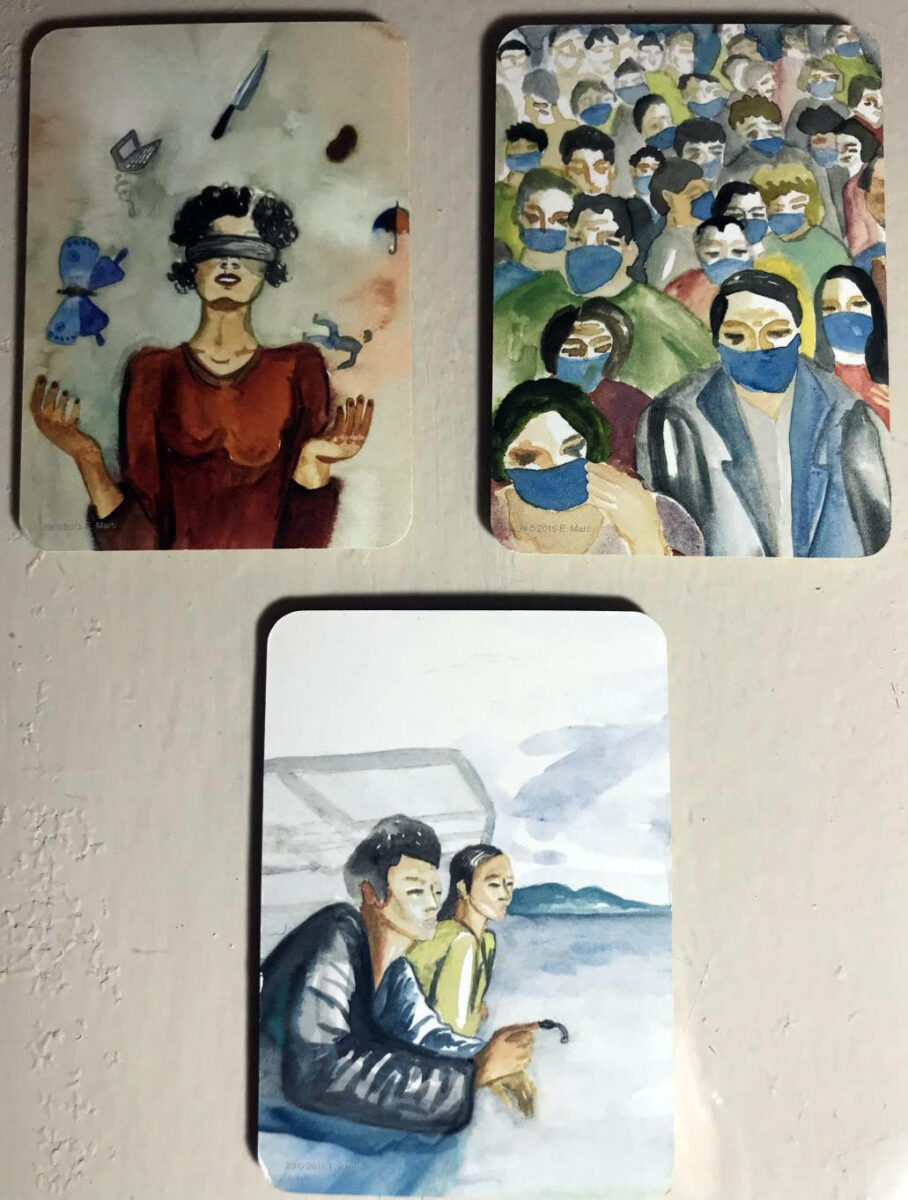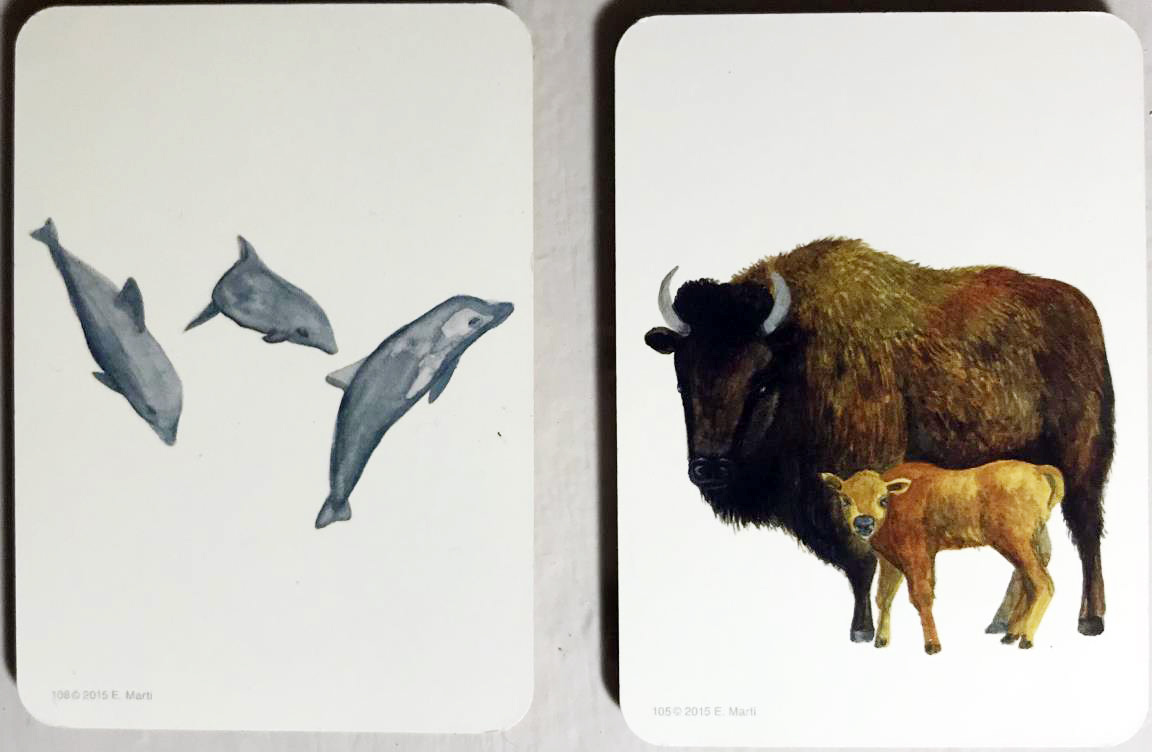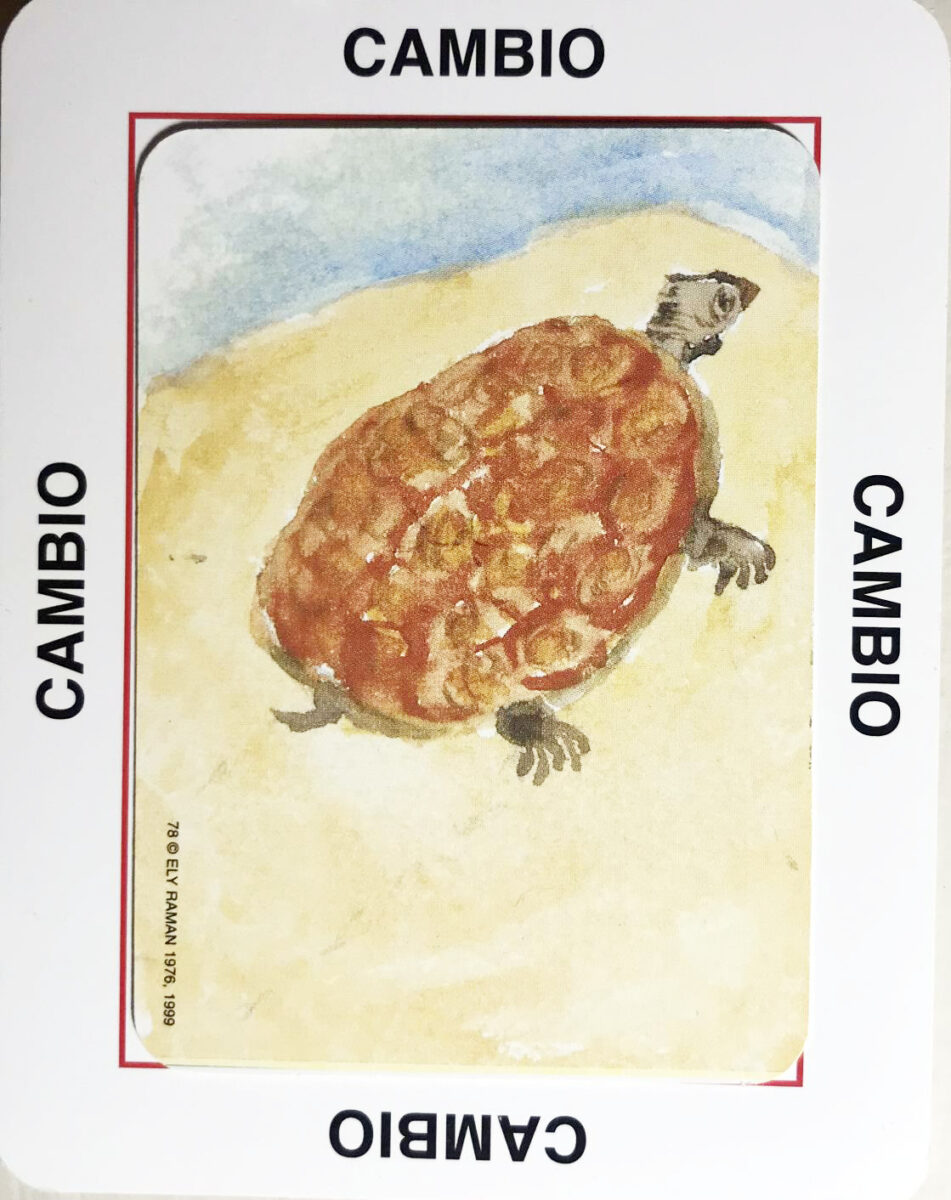
In Search of Internal Resources
Read the original presentation in Spanish
Working with OH-Cards and Resilio Cards
Laura is a professional 30-year-old young woman, mother of one child, and divorced about a year ago.
Laura has come a long way in terms of therapy. Her first consultation happened when she was 19. She was very shy, and had a certain difficulty when expressing herself, especially when it came to claiming what she wants. She is very nice, sweet and has a great sense of humor. She had doubts regarding her career choice, a topic that we managed to shed a light on throughout the treatment, which allowed her to develop professionally in a successful way.
The relationship with her ex-husband was complex. She did not feel validated by him, and felt powerless when arguing or showing her point of view on disagreements. Her ex-husband was very offensive with her throughout their marriage, even though he had went through many deep emotional crises, and Laura had always been by his side.
As a mother, she is very loving and committed, despite having raised them very much alone.
The separation was very painful for Laura. She suffered from psychological abuse, which made her subject to a highly negative relationship. Laura often lost her sense of being, went through profound panic attacks but, at the same time, had some major resources that allowed her to chart a new course for her life. Laura feels happy when she arrives to the session. It is her birthday; she looks very nice and is energetic. She comes into the office and says “I feel good. Last year, I was getting divorced. Today, I feel that I’ve changed, I’m different, I feel more like a woman”.
I tell her that I noticed that, too, and I suggest working with the OH Cards. Laura quickly settles and starts choosing cards enthusiastically. The cards are facing down.
The word is “affection”.
“Affection is deep, nice. I have it. It comes easy to me. With my child, it’s something so pure”.
“An image of a policeman, of authority. I have a hard time with that. It intimidates me, paralyzes me; they’re opposite”, “I feel as if I can’t relate the image with the word. That image of authority paralyzes me, it makes me feel small”.
I ask her to choose another face-down card, word or image, whichever one she likes. She takes a word-card and she herself connects it with the image she had already chosen.
The word is “naked”.
“Wow, this how I often feel: naked, vulnerable”.
Laura associates this feeling with her ex-husband. The difficulty in standing up for herself and expressing how she feels, which also happened with her father. She also links it to a work situation; there is a co-worker that wants to control and supervise Laura’s way of developing professionally, and Laura cannot confront that person.
I ask her to tell me what she thinks she needs in order to be able to confront people. Laura answers: “Clarity”.
I invite her to work with the “Resilio” cards, but, this time, the cards are facing up.
Firstly, I ask her to choose two cards that express how she feels in her relationships, and the things that she rejects of them. Then, I ask her to choose one that represents what she wants in her relationships.
“Clearly, this is how I feel on many occasions: I can’t talk, I feel overpowered, stunned. That image with the covered mouth and people distresses me, because that’s what I feel many times”.
Therapist: And what about the image with the blindfolded eyes?
Laura: “I don’t really know, I picked it without thinking too much. Now that I see it clearly, I can say that I don’t feel like I’m blindfolded. I think I was, for a long time, but not anymore”.
“Now, I want to feel accompanied, not judged. I’m pretty simple, I don’t expect great things. This image of the couple is simple; they’re sitting, they appear calm and as if they are planning ahead”.
I ask her to pick two Resilio images with animals. This time, the cards are facing down.
Well, feeling supported is essential for me. That’s what I like about this image with dolphins. Not feeling alone and being with others, without being trampled on.
She takes the image with the buffalo and her baby “Maternity is a field in which I feel strong; it’s everything to me. I also feel good about my friendships; the problems come with my relationships with partners”.
I ask Laura how she feels this far. Laura: “Good. This is moving, it allows me to connect with things that are there, but I can’t always reach”.
I tell her that we are almost finished and I ask her to take two OH Cards, one word card and one image card, with the cards facing down.
The word is “change”.
Laura: “Something is starting in me, something different. I know that it’s a slow process and that I must be patient. Often times, I do this: I stuck my head in my shell to feel protected. There are still some situations in which I feel vulnerable, but I’m can perceive my desire for something new”.
Laura continued with her treatment and was able to strengthen her internal resources that had been invalidated. She was able to grow professionally and her partner relationships no longer felt threatening to her.
PDF of the English translation
Read the original presentation in Spanish
This vignette was previously presented at the XXVII Encuentro Latinoamericano sobre el pensamiento de Winnicott (Latin-American Conference on the Thinking of Winnicott) at the workshop “Cuando las palabras no son suficiente. Una invitación desde el arte a la asociación“ (When Words Are Not Enough. An Invitation from Art to Association) dictated by Victoria Font Saravia and Yanina Piccolo, with the use of the OH Cards.
Egetmeyer Moritz, “Resilio” Associative Cards, OH Institute, Germany, www.oh-cards.com
The Resilio cards contain a great amount of images with every-day situations and several cards with paintings of animals. Associative Cards OH Cards, Publisher Moritz Egetmeyer, OH Institute, Germany www.oh-cards.com
Yanina Piccolo has a Bachelor of Science degree in Psychology (UBA, University of Buenos Aires). She is President and founding member of the IARPP Buenos Aires (Asociación Internacional de Psicoanálisis y Psicoterapia Relacional, Buenos Aires [International Association for Psychoanalysis and Relational Psychotherapy]). Along with Victoria Font Saravia, they offer workshops on the OH Associative Cards in Buenos Aires, Argentina.
She is a co-author of the book “Técnicas Proyectivas” (Projective Techniques), Volume 1, Lugar Publishing House, 2004. She is a co-author of the book Psicoanálisis Relacional. Una nueva mirada, una nueva práctica (Relational Psychoanalysis. A New Look, A New Practice), Letra Viva Publishing House, 2021.
Translated by Megan Wade spc.megan.wade@gmail.com




